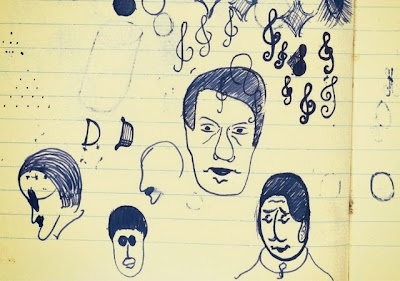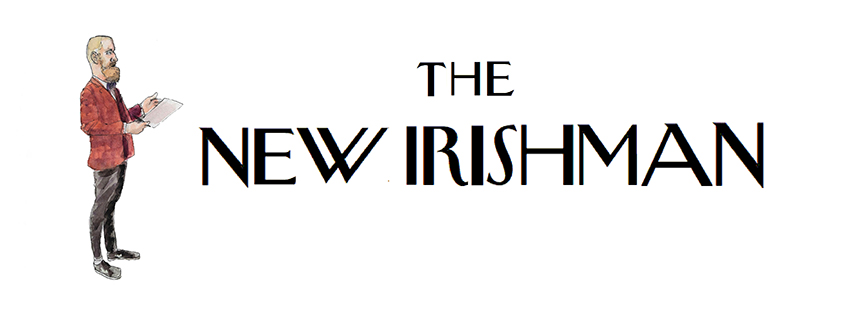 |
| Doodles by Samuel Beckett, including a scribble of James Joyce |
In 1907, aged 25, James Joyce wrote 'The Last Fenian' and remarked upon the enduring struggle between violent and constitutional nationalism:
"Anyone who studies the history of the Irish revolution during the nineteenth century finds himself faced with a double struggle — the struggle of the Irish nation against the English government, and the struggle, perhaps no less bitter, between the moderate patriots and the so-called party of physical force. This party under different names: ‘White Boys’, ‘Men of ‘98’, ‘United Irishmen’, ‘Invincibles’, ‘Fenians’, has always refused to be connected with either the English political parties or the Nationalist parliamentarians. They maintain (and in this assertion history fully supports them) that any concessions that have been granted to Ireland, England has granted unwillingly, and, as it is usually put, at the point of a bayonet."
He also said:
"The Fenians and Nationalists revile each other with the greatest scorn, one side attributing the measure to the success of parliamentary tactics and the other attributing it to the persuasive faculty of the knife or the bomb.”
And Joyce, the son of a Parnellite organiser, passed his view on armed separatism:
"It is impossible for a desperate and bloody doctrine like Fenianism to continue its existence in an atmosphere like this [Ireland, 1907], and in fact, as agrarian crimes and crimes of violence have become more and more rare, Fenianism too has once more changed its name and appearance. It is still a separatist doctrine but it no longer uses dynamite. The new Fenians are joined in a party which is called Sinn Fein (We Ourselves)… From many points of view, this last phase of Fenianism is perhaps the most formidable."
Joyce explained the nature of the "intransigent press":
"The intransigent press [in Ireland] never ceases to greet the deeds of the Nationalist representatives at Westminster with virulent and ironic comments, and although it recognizes that in view of England’s power armed revolt has now become an impossible dream, it has never stopped inculcating in the minds of the coming generation the dogma of separatism."
Then this was incredible in its contemporay resonance:
"The spectacle of a population which diminishes year by year with mathematical regularity, of the uninterrupted emigration to the United States or Europe of Irishmen for whom the economic and intellectual conditions of their native land are unbearable.”
Then there was this historical note:
"Pope Adrian IV… made a gift of the island [of Ireland] to the English King Henry II about 800 years ago, in moment of generosity.”

No comments:
Post a Comment